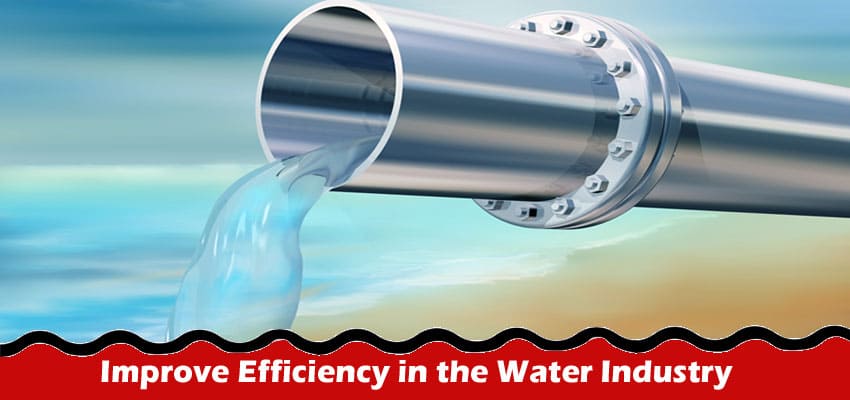The water industry is a vital component of modern life, providing essential resources for drinking, cleaning, and other everyday activities. However, due to growing population demands and the changing climate, managing this precious resource has become increasingly challenging. To meet these challenges head-on, many companies in the water industry are now leveraging modern technological tools and solutions to drive efficiency and sustainability. This includes using sensors, automation systems, artificial intelligence (AI), machine learning (ML) algorithms, and more.
In this article, we will explore how these technologies are being utilized to optimize processes within the water industry as well as their potential implications on overall operations. We will begin with a brief overview of the technologies being used, then dive deeper into their application in the water industry.
Modern Technologies Used in the Water Industry
Sensors are being used to collect data on various water parameters such as temperature, pressure, and pH. This enables real-time monitoring of water quality and can alert operators when something is wrong.
Automation systems automate manual tasks and create a more efficient workflow. AI-based solutions can be programmed to monitor flows, detect leaks and predict potential equipment failures. ML algorithms can be used to identify patterns in data, enabling more accurate forecasting and decision-making.
Another technology that is quickly gaining traction in the water industry is blockchain, which can be used to store data securely and keep track of assets. This can help reduce fraud, improve compliance, and streamline operations.
Traditional technologies are also being used in modern ways, such as float switches. These simple devices are used to detect the level of water in tanks or reservoirs and can be connected to automation systems for better management and monitoring.
Benefits of Leveraging Technology to Improve Efficiency in the Water Industry
Using modern technologies in the water industry can bring a variety of benefits, including improved safety, better utilization of resources, and cost savings.
- Improved Safety: By using sensors to monitor parameters such as temperature, pressure, and pH levels, operators can quickly spot issues before they become more serious. Automation systems can be used to alert operators in real-time if something is not right, helping to prevent accidents.
- Better Utilization of Resources: Automated systems can optimize operations by controlling flows and predicting potential equipment failures. AI-based solutions can be used to identify patterns in data, enabling more accurate forecasting and decision-making. This can help companies use their resources more efficiently and reduce waste.
- Cost Savings: Automating manual tasks can help to reduce labor costs, while predictive analytics can help companies identify potential issues before they become more serious and costly. Additionally, blockchain technology can be used to keep track of assets and improve compliance, which could result in cost savings in the long run.
What Does This Mean for Businesses Going Forward?
By leveraging modern technologies in the water industry, companies can gain a competitive edge and improve their operations. Automated systems can help to optimize processes and reduce labor costs, while AI-based solutions can enable more accurate forecasting and decision-making. Blockchain technology can be used to store data securely, helping to reduce fraud and improve compliance.
Now more than ever, companies in the water industry must embrace technology to stay competitive. By doing so, they can improve efficiency and operations while helping the environment by reducing waste and conserving resources.
Conclusion
The water industry is leveraging modern technologies such as sensors, automation systems, AI, and blockchain to optimize processes, reduce waste and improve efficiency. These technologies have the potential to bring a variety of benefits to businesses in the industry, including improved safety, better utilization of resources, and cost savings. Companies must embrace technology going forward if they want to stay competitive and ensure their long-term success.


